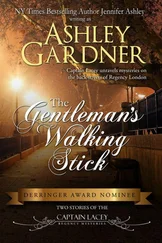I think chivalry is a magnificent thing.*
Kensington crashed his flying machine on the Heath. With the help of a kindly farmer he dragged the wreckage into an old barn, where he has been returning each day to make repairs. By his description, the crash was not as calamitous as it could have been, and the craft by no means permanently crippled. He told Lancaster and me in what proved to be a lengthy and altogether fascinating conversation (begun in his garret and continued on our trip to the Heath) that he believed with help he could have it once again ‘cloudworthy’ (his expression, and one I quite like) within half a day. He estimates that the journey to Iceland will take about thirty-six hours. It is longer than I had hoped, but so much shorter than any alternative that I am grateful.
He expressed some scepticism at our plan, but admitted cheerfully that ‘I am but an inventor while you are a poet and an explorer.’ This gratified Lancaster (he is a little vain, I find, and enjoys compliments), but made me rather nervous. Our plan really is a most tenuous one. We are pursuing it less because it is a good idea than because we haven’t a better one.*
What horrifies me most is the possibility that we will arrive in Iceland in three days’ time only to discover that the volcano is nothing more than a volcano, that there is no trace of the metaphysical about it, and that my wife is as distant to me as she was before.
We reach the barn at sunrise. (I say ‘sunrise’ because somewhere above the clouds, the sun is rising; all we can see, however, is a general brightening of the sky.) I am wracked with curiosity to view Kensington’s machine.
The barn is much like any other. It is grey and wooden and large and commonplace. It stands on a rise above a field. The field is green and spotted with sheep. It is also commonplace. In the middle of it is an area of disturbed earth three yards wide and perhaps thirty long. Kensington identifies this as his crash site.
Lancaster and I help to open the barn door. What is inside takes my breath away. The machine is shaped like an enormous dragonfly. Its central hull (does one call it a hull on a flying machine?*) is about thirty feet long and maybe ten feet wide at its widest, and about the same in height and depth. (I should here state that, though I have been throwing estimates of size and distance about willy-nilly, I am in fact perfectly hopeless with spatial relations, and am very likely mistaken by no small amount.) Shingles covering the hull give the impression of scales. About a third of the way from the front (imagine again a dragonfly) are its four wings. They are made of canvas stretched over a wooden framework. They appear to be manipulated by a series of gears, levers, pistons, and other such machinations, which are connected by means of dented metal pipes to what I believe is a steam engine.
The hull tapers somewhat toward the rear, and then abruptly splays like a hawk’s tail. This at one time seems to have been covered similarly to the wings — but the only evidence of it now is a few muddy tatters hanging from tarnished tacks.

The front of the machine is nondescript — nothing to suggest a captain’s seat. As we draw nearer and I get a better view, I discover that the whole hull is open on top. My initial impression of a dragonfly was only partially correct; more apt would be to call it a longship with dragonfly wings and a tail. The scaled hull, which bulges at the middle to hold the engine, is built with the shallow draught of a Viking ship and narrows at the front to the same sharp prow.
On the underside of the hull are not wheels, as I would have supposed, but rather skids or skis. One of these is broken in a manner piteous to behold. The front of the craft is badly banged. The framework of one of the wings has snapped and is held together only by the canvas covering it. These injuries aside, however, the machine looks in much better shape than I had expected.
Lancaster is walking around and around it in wonderment. He keeps murmuring things under his breath, but all I can make out is, ‘Brilliant… brilliant.’ Kensington stands back a little, watching the two of us with apprehension. I believe he is nervous of our opinion.
He needn’t be. It is the most incredible sight I have ever seen, and I tell him so. Lancaster is no less sparing in his praise. Kensington, though, is a humble creature and does not take compliments with the alacrity of, say, Lancaster; and he quickly begins speaking so that we can say no more.
‘She’s not looking her finest, of course,’ he demurs. ‘Better now than a week ago, but all the same, she took quite a beating. But I think we can have her up and about in no time, really.’
‘What can we do to help?’ asks Lancaster.
‘Oh, well, I’m not sure. It’s mostly tinkering which— Well, I don’t mean to be— The fact is, there are certain things which I’m not sure anyone but myself will know how to do. If you’ll pardon me.’
In any other man, such diffidence would strike me as unconscionably tiresome; but it does not bother me in Kensington. His confidence and kindness excuse his overzealous humility — and they show it to be not mere affectation, but a genuine desire to be gentlemanly. This I approve of, even if I cannot imagine it in myself. I am a coarser fellow than that.
‘We quite understand,’ Lancaster says kindly. ‘We’re rather advanced in our own fields, you know; Savage wouldn’t have me write a poem, by Christ, nor I him lead an expedition. All the same, I know a thing or two about nautical maintenance, and I can’t imagine an airship is so different than a boat. If you’re willing to have another man tamper with her, I’m yours to command.’
‘Oh, excellent!’ says Kensington. ‘Yes, I suppose that she must be similar to a sailing ship in many areas. In fact, we are I believe going to have to purchase some sailcloth to patch her tail.’
I leap at the opportunity to be something other than completely useless. ‘I can do that!’ I say. ‘Shall I run back to town for it?’
Kensington looks like he’s worried to put me out. ‘Only if it isn’t too much trouble,’ he says dubiously.
His demeanour is finally beginning to grate. We haven’t time for such scrupulous politeness. ‘Look here, man,’ I exclaim, ‘ you’re helping me to save my wife. My helping you fix your machine is only a means to my end — so don’t concern yourself about any trouble you’re causing me.’
‘I’m so sorry, sir. You’re quite right. As my sister once said—’
‘Good God!’ I cry. ‘Lancaster, we’ve forgotten Lizzie!’ In the excitement of our brief imprisonment and Kensington’s aeronautical wonderments, it completely slipped my mind that we had promised to return for her.
The colour drains from Lancaster’s face. He has not known Lizzie long, but he has apprehended enough of her character to know that we are in for a very stern talking-to and possibly some physical violence done upon our persons.
‘Damn,’ he says. ‘Damn, damn, damn, damn, damn.’

Twelve In Which I Witness Something I Wish I Hadn’t
I make it from Hampstead Heath to Pocklington Place in record time. My cabman thinks me mad, but it is no matter. We clatter through the morning streets at breakneck speed, hurtling past sleepy shopkeepers and bleary bakers, and I yell at him to go faster. As we plunge deeper into London the buildings loom and press together like the walls of a maze but our pace does not flag. We fly past the Museum and careen onto Oxford Street, where the cabman deftly wends his hansom through the morning traffic, already thick on this main artery of the city. We leave commerce behind us, and our speed increases in the sparsely peopled streets of the fashionable neighbourhood in which I live. He deposits me at the steps of my house, and I dash to the door and hurl myself inside. I run to my study, from whence I shall go upstairs and prostrate myself before Lizzie.
Читать дальше














